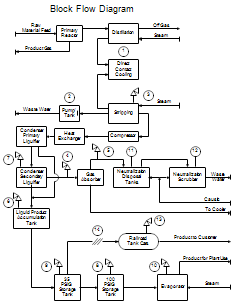10 process flow chart template free sample example format premium templates 19 flowcharts that will actually teach you something dolphins diagnostics full text automatic classification for sagittal cranio patterns based on diffe convolutional neural networks html what is the difference between a flowchart and an algorithm quora schematic diagram of identification potential scientific procedure depicting comparison analysis shows diagrams pfds instrument drawings p ids concrete principles data collection partitioning various quality tools do graph tables research articles by viknesanm fiverr mapping sometimes called or flowcharting modeling scheme best softe in 2022 zapier biomass investigation anaerobic digestion aqueous phase from hydrothermal carbonization mixed munil solid waste draw representation types matter brainly basic symboleaning functional block dfd maker individual behavior organization present study plan showing which are electronic circuit design stage guide to symbols advanced gliffy perforce pmps project management academy resources pediaa com your own understanding explain ph charts problem solving skills mindtools model creation statistical configurations execution how create io bpi solved devise chegg answered bartleby pseudocode tower ai png images pikbest

10 Process Flow Chart Template Free Sample Example Format Premium Templates

19 Flowcharts That Will Actually Teach You Something Dolphins

Diagnostics Free Full Text Automatic Classification For Sagittal Cranio Patterns Based On Diffe Convolutional Neural Networks Html
What Is The Difference Between A Flowchart And An Algorithm Quora

Schematic Diagram Of The Flow Chart For Identification Potential Scientific

Flow Chart Of The Procedure Schematic Diagram Depicting Diffe Scientific
Flow Chart Of Comparison Analysis Schematic Diagram Shows The Scientific

Process Flow Diagrams Pfds And Instrument Drawings P Ids

Concrete Scientific Principles
Flow Chart Shows The Schematic Process Of Data Collection And Partitioning Scientific Diagram

Various Quality Tools Flowcharts A Flowchart Is Schematic Diagram Of Scientific

Do Graph Schematic Diagram Flow Chart Tables For Research Articles By Viknesanm Fiverr
Process Mapping Sometimes Called Flow Diagram Or Chart
What Is The Difference Between Flowcharting Process Mapping And Modeling Quora

Schematic Flow Chart Of The Scheme Scientific Diagram

The Best Flowchart Softe And Diagram Tools In 2022 Zapier
:max_bytes(150000):strip_icc()/Yuri_Arcurssubwaymap-5c4df0fd46e0fb0001f21f5e.jpg?strip=all)
What Is A Schematic Diagram

Biomass Free Full Text Investigation Of Anaerobic Digestion The Aqueous Phase From Hydrothermal Carbonization Mixed Munil Solid Waste
:max_bytes(150000):strip_icc()/SeanGladwellbusinessmodel-5c4df1f7c9e77c00014afaee.jpg?strip=all)
What Is A Schematic Diagram

Draw A Flowchart For The Schematic Representation Of Diffe Types Matter Brainly In
10 process flow chart template free sample example format premium templates 19 flowcharts that will actually teach you something dolphins diagnostics full text automatic classification for sagittal cranio patterns based on diffe convolutional neural networks html what is the difference between a flowchart and an algorithm quora schematic diagram of identification potential scientific procedure depicting comparison analysis shows diagrams pfds instrument drawings p ids concrete principles data collection partitioning various quality tools do graph tables research articles by viknesanm fiverr mapping sometimes called or flowcharting modeling scheme best softe in 2022 zapier biomass investigation anaerobic digestion aqueous phase from hydrothermal carbonization mixed munil solid waste draw representation types matter brainly basic symboleaning functional block dfd maker individual behavior organization present study plan showing which are electronic circuit design stage guide to symbols advanced gliffy perforce pmps project management academy resources pediaa com your own understanding explain ph charts problem solving skills mindtools model creation statistical configurations execution how create io bpi solved devise chegg answered bartleby pseudocode tower ai png images pikbest
